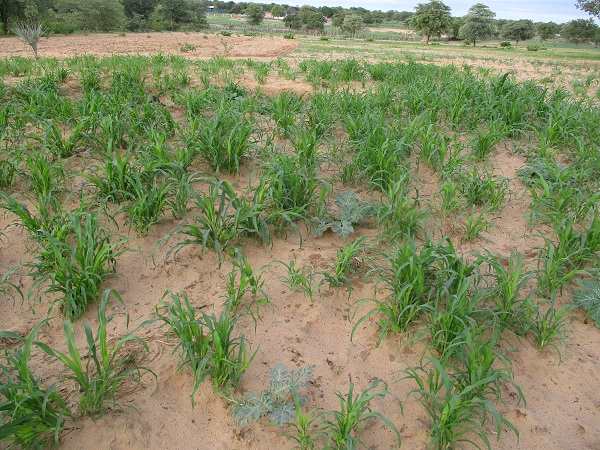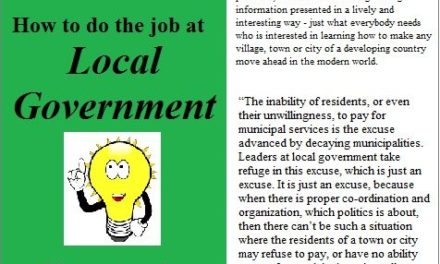
The good rains which fell – and continue to fall – over vast parts of Namibia have brought cheers in the hearts, and smiles on the faces, of many people who depend on rain-fed agriculture and livestock farming.
Most areas of the northern regions received above-average rainfall, which is a blessing for the majority of the people since they depend on crop farming for their livelihoods. The mahangu (pearl millet) fields of people who are hardworking are lush with green plants and are promising a harvest better than last year’s.
But people in some areas consider the good rains as being too much for them as their mahangu fields are soaked in water. The soil of some areas is such that it cannot absorb a lot of water quickly, which makes it easy for the rain water to collect up in puddles for hours and days after rainfall has stopped, and sometimes puddles would become bigger ponds which may cover the whole land meant for cultivation.
And then the water would flow towards low level areas into flood plains across roads, settlements and school grounds and cemeteries too.
“It has rained very well, but in some parts of my constituency I predict that this year’s harvest will not be 100% good as last year because the fields don’t like so much rainfall,” said Elim Constituency Councillor Mr Gerhard Shiimi.
“But nevertheless the people are happy, and they want it to keep on raining because even too much of water is better in many ways.
“But especially the cattle-owners are very happy because since last year October the animals are feeding on the grass of the current rainy season.”
Mr Shiimi said that the most destruction brought about by the rain was on the roads. “It is something which our road engineers have to take into account. Our gravel road which goes to Onkani has been damaged in several places as the water tries to cross to the other side. Road engineers are supposed to be in the know that it is necessary to put culverts where water would pass (under the road). By the look of it this road will soon be impassable.
“And it will affect many people, because most of the people relocated by the expansions of towns such as Oshikuku, Ongwediva and Oshakati, they made their mahangu fields in the area of Onkani so that they constantly use this road especially this time of the cultivation.”
CAPTION: In the picture is a mahangu field in the Ruacana Constituency, where good rains have brought hope for a better harvest.






